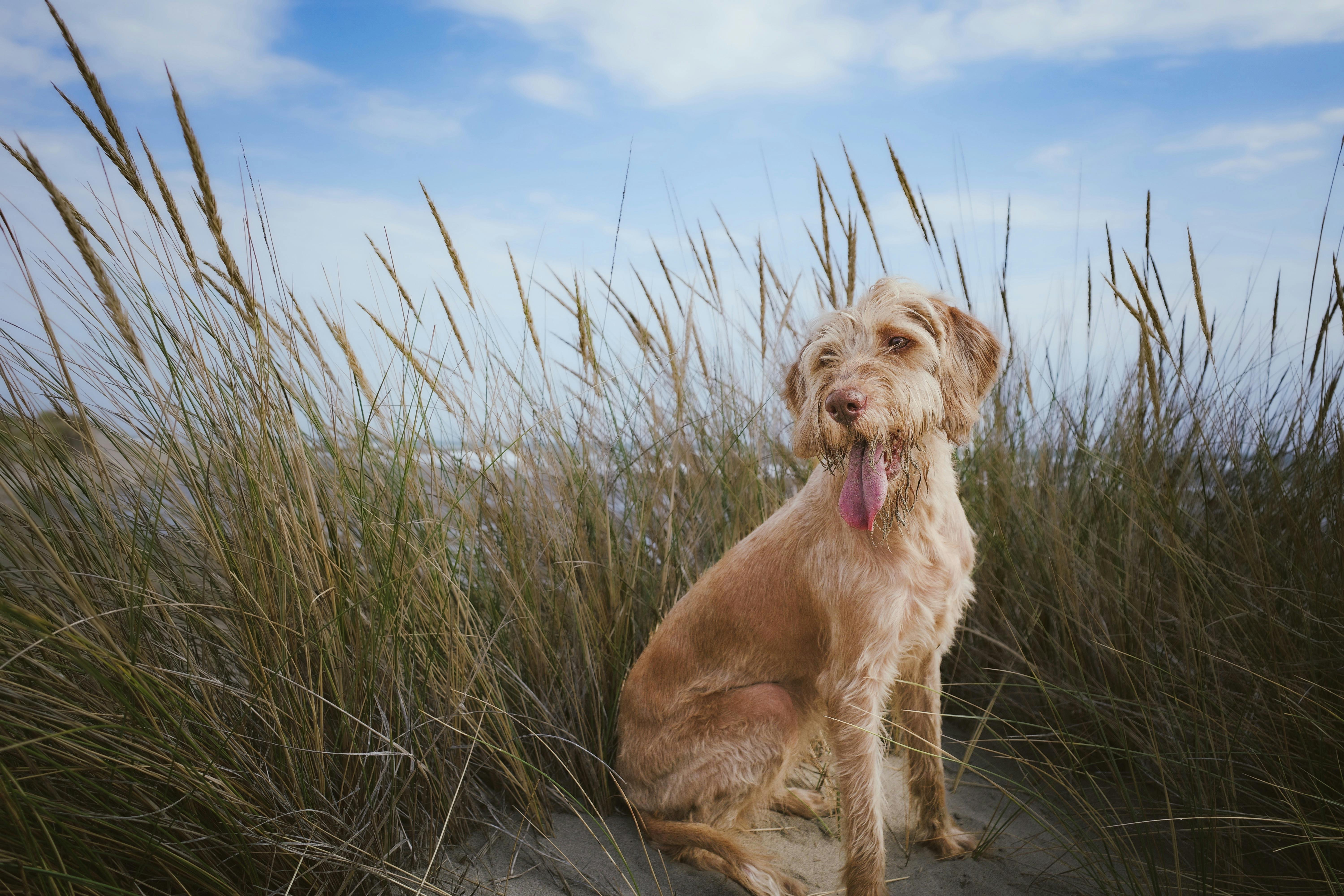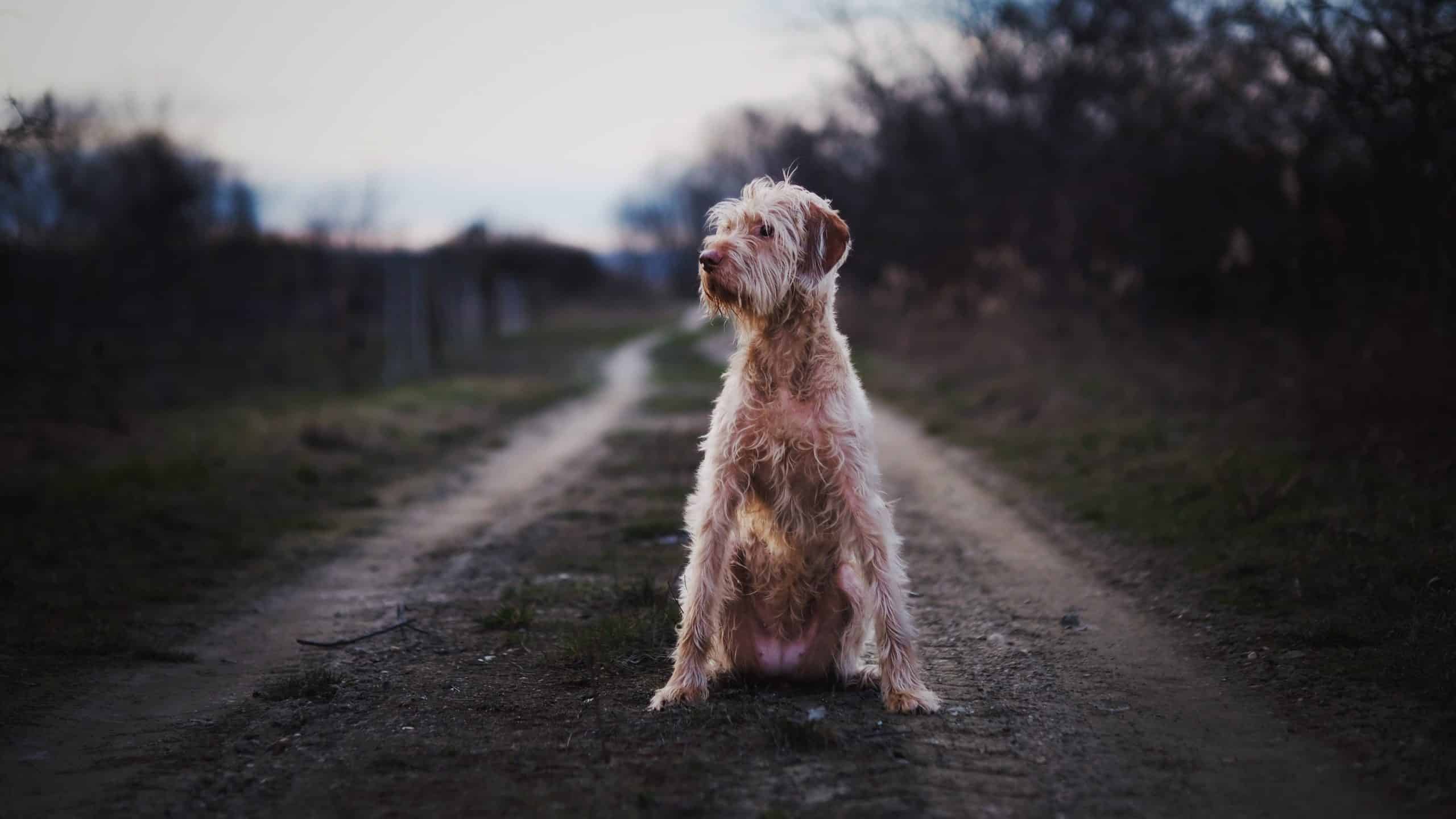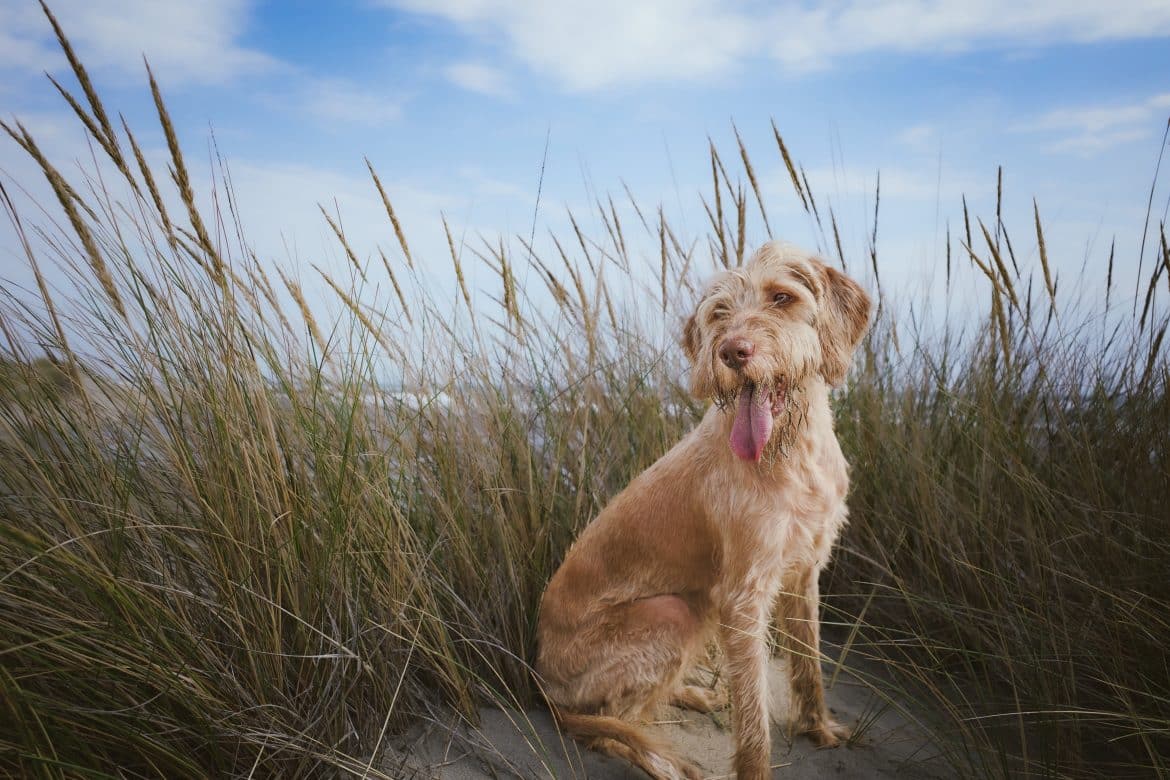Are you concerned about your furry friend's weight? Maintaining a healthy weight is crucial for your dog's overall well-being. In this article, we will share some valuable tips on how to ensure that your beloved companion stays fit and maintains a healthy weight. By implementing these strategies, you can help your dog live a long, happy, and active life.

This image is property of images.pexels.com.
Tips for Feeding Your Dog
Feeding your dog a balanced and nutritious diet is vital for their overall health and well-being. Here are some tips to help you make informed choices when it comes to your dog's food:
Choose the Right Dog Food
When selecting dog food, it's essential to consider your dog's specific needs. Different breeds, sizes, and ages require different nutritional profiles. Look for high-quality dog food that is appropriate for your dog's breed and life stage. Reading the labels and understanding the ingredients can help you make an educated decision.
Follow the Recommended Portion Sizes
Feeding your dog the right amount of food is crucial to maintaining a healthy weight. It's important to follow the portion sizes recommended by the dog food manufacturer. These guidelines typically take into account the dog's age, weight, and activity level. Remember, overfeeding can lead to weight gain, so it's essential to measure the food accurately.
Establish a Feeding Schedule
Establishing a regular feeding schedule is essential for your dog's digestive health. Feed your dog at the same time every day to create a routine. This not only helps with their digestion but also makes it easier to monitor their appetite and detect any changes in their eating habits.
Avoid Free-Feeding
Free-feeding, which is leaving food available for your dog to graze on throughout the day, can lead to overeating and weight gain. Instead, offer meals at specific times and remove any uneaten food after 15-20 minutes. This helps to regulate your dog's food intake and prevent excessive snacking.
Monitor Treat Intake
While treats can be a great way to reward your dog or provide them with a special treat, it's important to monitor their intake. Treats should only make up a small part of your dog's overall diet. Opt for healthy and low-calorie treats, and be mindful of the quantity given. Overindulging in treats can lead to weight gain and can be harmful to your dog's health.
Promoting Regular Exercise
Regular exercise is essential for your dog's physical and mental well-being. Here are some tips to help keep your dog active and engaged:
Daily Walks
Taking your dog for daily walks is a simple and effective way to provide them with exercise. Aim for at least 30 minutes of brisk walking each day. This not only helps with weight maintenance but also provides mental stimulation and an opportunity for your dog to explore their surroundings.
Engage in Playtime
Playtime is crucial for your dog's overall happiness and helps strengthen the bond between you and your furry friend. Engage in interactive games such as fetch, tug-of-war, or hide-and-seek. These activities not only provide physical exercise but also stimulate your dog mentally.
Try Out Different Activities
Mixing up your dog's exercise routine can help keep them motivated and prevent boredom. Consider activities such as swimming, agility training, hiking, or even obedience classes. These activities provide a fresh challenge and cater to your dog's specific needs and preferences.
Consider Dog Sports
If your dog has a high energy level and enjoys challenging activities, consider participating in dog sports. Sports such as agility, flyball, or dock diving provide a competitive outlet for your dog while keeping them physically fit and mentally stimulated.
Consult a Vet for Health Limitations
It's essential to consider any health limitations or conditions your dog may have when planning their exercise routine. Some breeds may be more prone to certain health conditions that require modified exercise. Consult your vet for advice on the appropriate exercise program for your dog's individual needs.

This image is property of images.pexels.com.
Creating a Safe Environment
Creating a safe environment for your dog is essential to ensure their well-being and prevent accidents. Here are some tips to help you create a safe space for your furry friend:
Limit Access to Human Food
While it can be tempting to share your food with your dog, many human foods can be harmful or toxic to dogs. Foods like chocolate, grapes, onions, and avocado can be dangerous for dogs and should be kept out of their reach.
Store Food Properly
Properly storing your dog's food is important to maintain its freshness and prevent contamination. Keep the food in a sealed container to protect it from pests and humidity. Additionally, store it in a cool and dry place to preserve its nutritional value.
Prevent Food Stealing
Dogs are notorious for their love of food, and some may try to snatch food from countertops or tables. To prevent food stealing, be mindful of where you leave food unattended. Keep countertops clear, and secure trash cans with appropriate lids.
Remove Dangerous Objects
Dogs are naturally curious, and it's essential to remove any objects that could pose a choking hazard or cause harm if ingested. Keep small items, toxic plants, chemicals, and household cleaners out of your dog's reach.
Supervise Outdoor Activities
When allowing your dog to spend time outdoors, it's important to supervise their activities. Ensure they are in a securely fenced area and monitor any potential hazards, such as sharp objects or toxic plants. Supervision is particularly crucial if you have a puppy or a dog with a tendency to wander.
Monitoring Your Dog's Weight
Maintaining a healthy weight is vital for your dog's overall health and longevity. Here are some tips for monitoring and managing your dog's weight:
Regular Weigh-Ins
Regularly weighing your dog can help you track their weight and identify any changes. To weigh your dog at home, use a pet scale or simply weigh yourself while holding your dog and subtract your weight.
Check Body Condition Score
In addition to weighing your dog, it's essential to assess their body condition. A body condition score evaluates your dog's overall body shape and fat distribution. Consult your vet to learn how to perform a body condition score assessment.
Consult a Vet for Assessment
If you're unsure about your dog's weight or need guidance on weight management, consult your vet. They can assess your dog's overall health and provide recommendations tailored to your dog's specific needs.
Track Progress with a Journal
Maintaining a journal to record your dog's weight, feeding habits, exercise routine, and any changes in their behavior can be a valuable tool. This allows you to track their progress and identify any areas that may need adjustment.
Adjust Diet or Exercise as Needed
If your dog is not maintaining a healthy weight, it may be necessary to make adjustments to their diet or exercise routine. Consult your vet for recommendations on portion sizes, calorie intake, and appropriate exercise levels for weight management.

This image is property of images.pexels.com.
Understanding Breed and Age Factors
Different breeds and life stages have varying needs when it comes to diet and exercise. Here are some factors to consider:
Research Breed-Specific Needs
Every breed has unique characteristics and potential health risks. Research your dog's breed to understand their specific nutritional and exercise requirements. Some breeds may be more prone to certain health conditions or have higher energy levels.
Adapt Exercise Routine for Size
Small and toy breeds may have different exercise needs compared to larger breeds. While small dogs still require exercise, their exercise routine may need to be adapted to their size and stamina. Conversely, large and active breeds may require more intense and prolonged exercise sessions.
Consider Life Stage Requirements
Puppies, adult dogs, and senior dogs have different nutritional and exercise needs. Puppies require specialized diets to support their rapid growth, while senior dogs may benefit from joint support and lower-calorie foods. Adjust your dog's diet and exercise routine as they transition through different life stages.
Prevent Obesity in Aging Dogs
As dogs age, their metabolism slows down, and they may become less active. This can lead to weight gain and obesity. Be mindful of their calorie intake and adjust their diet and exercise routine accordingly to prevent obesity and promote overall health.
Discuss with Breeders or Rescues
If you're considering getting a dog from a breeder or adopting from a rescue, discussing their specific needs and any health concerns with them can provide valuable insights. Breeders and rescues can help guide you on the appropriate diet and exercise plan for your new furry family member.
Healthy Treat Options
Treats are a great way to reward your dog and provide them with a little extra joy. Here are some tips for choosing healthy treats:
Choose Low-Calorie Treats
When selecting treats, opt for low-calorie options to prevent weight gain. Many pet stores offer a variety of low-calorie treats specifically designed for dogs. Look for treats made with high-quality ingredients and avoid those with excessive fillers or artificial additives.
Offer Fresh Fruits and Vegetables
Fresh fruits and vegetables can be healthy and nutritious treats for your dog. Apples, carrots, blueberries, and green beans are examples of dog-safe fruits and vegetables. However, always research and ensure that the fruits or vegetables you offer are safe for dogs and do not pose any health risks.
Avoid Foods Toxic for Dogs
Some human foods can be toxic to dogs and should never be given as treats. Foods like chocolate, grapes, onions, and nuts can be harmful and even fatal to dogs. Familiarize yourself with the list of foods that are toxic to dogs to ensure you don't accidentally give them something harmful.
Use Treats as Rewards
Treats are a fantastic tool for positive reinforcement during training sessions or for good behavior. Use treats sparingly and offer them as a reward for desired behaviors or successful training exercises. This helps create a positive association and motivates your dog to continue learning and obeying commands.
Limit Treat Frequency
While treats can be a fun and tasty addition to your dog's diet, it's important to limit their frequency. Treats should only make up around 10% of your dog's daily calorie intake. Too many treats can lead to weight gain, nutritional imbalances, and an increased risk of health issues.

Regular Vet Check-Ups
Regular veterinary check-ups are essential for your dog's overall health and well-being. Here's why they are important:
Schedule Annual Examinations
Annual examinations allow your vet to assess your dog's overall health and detect any potential issues early. They will perform a thorough physical examination, check vital signs, and may recommend additional tests or vaccinations.
Consult Vet for Dietary Advice
Your vet can provide valuable dietary advice tailored to your dog's specific needs. They may recommend a specific diet based on your dog's age, breed, health condition, or weight management goals. They will also be able to address any concerns or questions you may have regarding your dog's diet.
Discuss Weight Concerns
If you have concerns about your dog's weight, a vet check-up is an excellent opportunity to discuss them. Your vet can assess your dog's body condition, provide guidance on weight management, and determine if any underlying health issues may be contributing to their weight.
Screen for Health Issues
Regular check-ups allow your vet to screen for any potential health issues or identify early warning signs. They may conduct blood tests, urinalysis, or other diagnostic procedures to ensure your dog is in optimal health and address any concerns promptly.
Ask for Exercise Recommendations
Your vet can provide you with exercise recommendations based on your dog's health, age, and breed. They can advise on the appropriate exercise levels, intensity, and duration for your dog's specific needs. It's essential to consult your vet, especially if your dog has any preexisting health conditions or limitations.
Addressing Behavioral Issues
Behavioral issues can impact your dog's overall well-being and happiness. Here are some tips for addressing and managing them:
Manage Stress and Anxiety
Stress and anxiety can manifest in various ways, such as excessive barking, destructive behavior, or aggression. Identify the underlying cause of your dog's stress or anxiety and work on providing a safe and comforting environment for them. Consult a professional dog trainer or veterinary behaviorist for assistance if needed.
Prevent Boredom and Overeating
Boredom can lead to destructive behaviors and overeating. Ensure your dog has plenty of mental and physical stimulation through interactive toys, puzzle feeders, and regular exercise. Avoid leaving them alone for long periods without stimulation.
Seek Professional Training Help
If your dog exhibits behavioral problems that you're unable to address, seeking the help of a professional dog trainer or veterinary behaviorist can be beneficial. They can diagnose the issue, provide guidance on how to modify the behavior, and help you establish a training plan.
Avoid Using Food for Emotional Support
Using food as a source of emotional support can lead to unhealthy habits and weight gain. Instead of offering treats to soothe your dog's emotions, provide comfort through cuddling, playtime, or engaging in relaxing activities together.
Implement Mental Stimulation
Mental stimulation is just as important as physical exercise for your dog's overall well-being. Engage them in interactive games, training sessions, or enrichment activities that challenge their mind and keep them entertained. Mental stimulation helps prevent boredom and can help address behavioral issues.

Recognizing Signs of Unhealthy Weight
Recognizing the signs of unhealthy weight in your dog is important to prevent health issues. Look out for the following signs:
Visible Ribs or Spine
If your dog's ribs or spine are overly visible, it may indicate that they are underweight. On the other hand, if these areas are not easily felt or covered in excess fat, it may be a sign of overweight or obesity.
Lack of Waist Definition
A healthy dog should have a visible waistline when viewed from above. If your dog has a straight or bulging waistline, it could be an indication that they are overweight.
Difficulty Feeling Ribs
When lightly running your hands over your dog's ribcage, you should be able to feel their ribs without applying excessive pressure. If you struggle to feel or locate their ribs, it may indicate that they are carrying excess weight.
Tiredness or Lethargy
Carrying excess weight can put additional strain on your dog's joints and cardiovascular system. If your dog appears tired, lethargic, or has difficulty keeping up during exercise, it may be a sign that their weight is affecting their overall health and energy levels.
Labored Breathing
Obesity can lead to respiratory issues in dogs, making it harder for them to breathe properly. If your dog pants excessively, wheezes, or has difficulty catching their breath during normal activities, it may be a sign that their weight is impacting their respiratory function.
Encouraging Socialization and Play
Socialization and play are essential for your dog's emotional well-being and can help prevent behavioral issues. Here's how you can encourage socialization and play:
Arrange Playdates with Other Dogs
Playdates with other dogs can provide your dog with valuable socialization opportunities. It allows them to interact and learn from other dogs, helping them develop appropriate social skills and behavior.
Participate in Dog-Friendly Events
Dog-friendly events, such as dog shows, agility competitions, or dog-friendly festivals, can be a great way to expose your dog to new experiences and interact with other dogs and dog owners. Check your local community for upcoming events.
Visit Dog Parks
Dog parks are specifically designed for off-leash play and socialization. They provide a safe and controlled environment for dogs to interact and burn off energy. Supervise your dog and ensure they are following park rules and practicing good behavior.
Explore New Environments
Taking your dog on walks or hikes in different environments can help stimulate their senses and provide new experiences. Whether it's a beach, a forest, or a bustling city street, exposing your dog to new sights, smells, and sounds can be enriching and enjoyable for them.
Promote Positive Interactions
Encouraging positive interactions with other dogs, animals, and humans is crucial for your dog's socialization. Reward good behavior and use positive reinforcement techniques to teach your dog appropriate social skills and manners.
Maintaining a healthy weight for your dog requires a combination of proper nutrition, regular exercise, and vigilant monitoring. By following these tips and prioritizing your dog's well-being, you can help them live a long, happy, and healthy life. Remember, consult your vet for personalized advice and recommendations based on your dog's specific needs.


